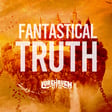Become a Creator today!Start creating today - Share your story with the world!
Start for free
00:00:00
00:00:01

238. Do Christians Need Dystopian Fiction?
Boom. Doom. Gloom. Criminals pillage. Cities burn. Mobs rampage. Tyrants rule with iron fists. We live in a society! People here often feel we’re overdue for dystopia. Even now, dystopian tales prove popular among many readers. Let’s explore why and ask whether Christian fans really need these stories.
Episode sponsors
- Enclave Publishing: Lethal Kings by Victoria McCombs
- Laurie Christine: Garden of Mysteries: A Dragon Slayer Bible Story
- The Jabin Kainos series by Vince Mancuso
Mission update
- New review of Lethal Kings by Victoria McCombs
- Subscribe free to get updates and join the Lorehaven Guild
Quotes and notes
- How to Help Your Teens Engage Dystopian Tales, Ticia Messing
- 137. Which Dystopian Doom Sounds Worse, Orwell’s ‘1984’ or Huxley’s ‘Brave New World’?
- The Giver Quartet Compares Dystopian Control with Human Purpose, Elijah David
- 229. What If Christians Joined Civil War Against Immortal Elites? | The Wall by Brian Penn
- “The Will of the People,” by Tim Pool
Concession stand
- This is part of our Fiction’s Chief End series, thus the word need.
- The dystopian genre has biblical roots. It’s echoed in the real-life encounters between David and King Saul, and in the parable Jesus told about the persistent widow.
- Dystopian stories usually have Man vs. Society conflict.
- Dystopia is one of the founding stories of the United States, along with the frontier.
- We’re recording this after a national election in the U.S.
- The timing is a feature, not a bug–purposeful, not accidental.
- In this transition period, everyone is forwarding their vision for the future, and warning of dark possibilities they’ve seen in stories.
- But we do our best to avoid conversations about particular politicians or policies.
- So we will also avoid the cliched discussions about dystopia tropes (such as teenage rebel love triangles).
1. Dystopian fiction helps us face real-life dystopia
- Most of us don’t have access to the levers of power in our political system.
- This genre is not primarily for political leaders. These stories usually focus on people with very little political capital.
- This is the first reason why dystopian fiction is useful for the average citizen: it gives us a blueprint for extreme resilience.
- For decades now, every election has been billed as “the most important of our lifetime.”
